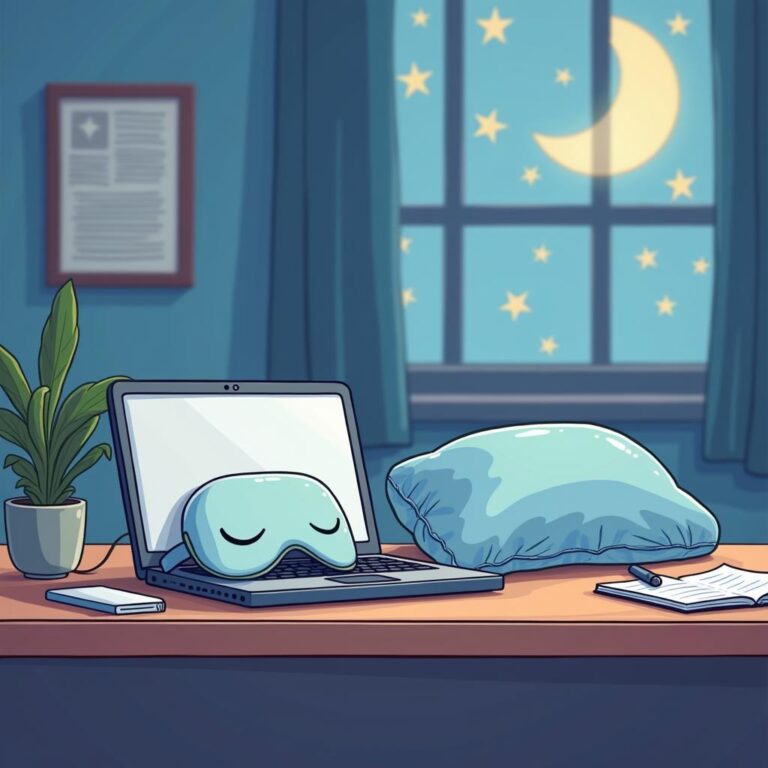Best Sleep Strategies for Business Owners: Achieve More with Rest
In the high-paced world of business, sleep often takes a back seat. Business owners are known for their relentless drive, but sacrificing sleep can lead to burnout, decreased productivity, and poorer decision-making. In this article, we’ll delve into the best sleep strategies for business owners so that you can achieve more with the rest you deserve.
Understanding the Importance of Sleep
Sleep is not a luxury; it’s a necessity—especially for business owners who face daily challenges requiring sharp focus and robust mental acuity. Research shows that sleep is crucial for cognitive functions such as memory, attention, and problem-solving. A good night’s rest can make the difference between a productive day filled with decisive action and one clouded by fatigue and indecision.
Common Sleep Challenges for Business Owners
Before we get into effective sleep strategies, it’s essential to understand the barriers that might affect your ability to get quality sleep:
- Stress and Anxiety: The pressures of running a business can lead to stress that prevents you from relaxing.
- Irregular Schedules: The demanding nature of entrepreneurship often results in fluctuating schedules, which disrupts your body’s internal clock.
- Overstimulation: Late-night emails and work-related communications can keep your mind active, making it difficult to wind down.
Best Sleep Strategies for Business Owners
1. Establish a Consistent Sleep Schedule
Establishing a regular sleep pattern helps regulate your body’s circadian rhythm, making it easier to fall asleep and wake up. Aim to go to bed and wake up at the same time every day, even on weekends. This consistency can lead to better quality sleep, allowing you to feel more rested and energized.
2. Create a Restful Environment
Your bedroom should be a sanctuary for sleep. Here are some tips for creating a relaxing environment:
- Darkness: Use blackout curtains to block out light, which can interfere with melatonin production.
- Cool Temperature: Keep your bedroom at a comfortable, slightly cooler temperature (between 60°F and 67°F) to promote optimal sleep.
- Quiet: Consider using white noise machines or earplugs to minimize disturbances from outside noise.
3. Limit Screen Time Before Bed
The blue light emitted by screens from phones, tablets, and computers can interfere with sleep-inducing hormones. Aim to reduce screen time at least an hour before bed. Instead, engage in calming activities such as reading, meditation, or light stretching.
4. Embrace a Wind-Down Routine
Develop a pre-sleep ritual to signal your body that it’s time to unwind. This can include:
- Meditation or deep-breathing exercises
- Listening to calming music or podcasts
- Taking a warm bath
Consistency in this routine can train your mind to associate these activities with sleep.
5. Incorporate Physical Activity
Regular physical activity can significantly improve sleep quality. Exercise helps reduce stress, releases endorphins, and prepares your body for restful sleep. Aim for at least 30 minutes of moderate exercise most days, but be cautious not to exercise too close to bedtime.
6. Be Mindful of Your Diet
What you consume throughout the day can dramatically affect your sleep. Here are some dietary tips:
- Avoid Heavy Meals: Steer clear of large meals close to bedtime, which can lead to discomfort and disrupted sleep.
- Limit Caffeine and Alcohol: Caffeine is a known stimulant, while alcohol can affect sleep cycles. Try to limit consumption, especially in the hours leading up to bedtime.
- Stay Hydrated: While it’s essential to drink water throughout the day, try to limit fluid intake an hour before bed to minimize nighttime trips to the bathroom.
7. Manage Stress Effectively
Stress is a deterrent to quality sleep. As a business owner, finding ways to manage stress can be transformative. Here are some techniques:
- Time Management: Prioritize tasks and delegate when possible to lighten the workload.
- Meditation and Mindfulness: Practicing mindfulness techniques can help center your thoughts and reduce anxiety.
- Talk it Out: Sharing your challenges with peers, mentors, or professional coaches can lighten the emotional load.
8. Consider Professional Help When Necessary
If sleep issues persist despite your best efforts, it may be time to consult a sleep specialist. Conditions like insomnia, sleep apnea, or restless leg syndrome can severely impact sleep quality. A medical professional can provide tailored solutions to resolve these issues and help you achieve restorative rest.
The Long-Term Benefits of Quality Sleep
Implementing these best sleep strategies for business owners does not just improve your nightly rest; it enhances overall well-being, productivity, and business performance. With better sleep, you’ll experience:
- Increased Focus and Creativity: A well-rested mind is more capable of generating innovative ideas and solving complex problems.
- Enhanced Communication: Good sleep contributes to clearer thinking and improved interpersonal skills, critical for effective leadership.
- Improved Health: Quality sleep strengthens the immune system and reduces the risk of chronic illnesses.
Conclusion
As a business owner, your ability to make sound decisions, generate creative solutions, and lead effectively greatly depends on the quality of your sleep. By adopting these best sleep strategies into your routine, you can maximize your rest, reduce stress, and ultimately achieve more in both your personal and professional life. Remember, investing in your sleep is investing in your success.







